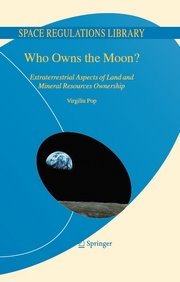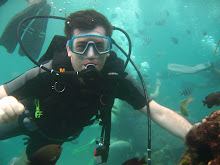Saturday, December 12, 2009
Wednesday, February 18, 2009
Moving to own domain
As of February 18th, I moved to my own domain. This blogspot site will no longer be updated; instead, visit virgiliupop.com.
Wednesday, February 11, 2009
The International Year of Astronomy in Bucovat, Timis County
 We meet again our friends from last year - the teachers and kids from the Bucovat school. In October 2008, they celebrated the World Space Week with a "Planets' Game". Coordinated by two enthusiastic teachers, Mihaela Cepeha and Camelia Dinu and with the help of other teachers, the event reunited 30 pupils in the school's sports hall. The Romanian Space Agency, coordinator of the WSW in Romania, rewarded them (as well as the other Romanian WSW participants) with a book and a diploma. The Bucovat space cadets decided to establish a science-fiction literary circle, and Radio Timisoara, the regional radio station, rewarded them with several Sci-Fi books for their school library. Radio Timisoara coordinates "Actiunea Badea Cartan", the person in charge with the collection of old books and their distribution to village libraries being my father, Radu Ciprian Pop. As this year is the International Year of Astronomy, and as the theme of many of the donated books is the fictional exploration of space, Radio Timisoara agreed to give the kids also a basic telescope so that they can catch a glimpse of the starships they will read about from their new library. In attendance was also Laurentiu Nistorescu from the "Renasterea Banateana" newspaper, who came on behalf of the "H.G. Wells" literary circle. It was agreed that on April 12th - on Yuri's Night - several HG Wells writers will visit Bucovat and, together with their younger colleagues, have a common reading session.
We meet again our friends from last year - the teachers and kids from the Bucovat school. In October 2008, they celebrated the World Space Week with a "Planets' Game". Coordinated by two enthusiastic teachers, Mihaela Cepeha and Camelia Dinu and with the help of other teachers, the event reunited 30 pupils in the school's sports hall. The Romanian Space Agency, coordinator of the WSW in Romania, rewarded them (as well as the other Romanian WSW participants) with a book and a diploma. The Bucovat space cadets decided to establish a science-fiction literary circle, and Radio Timisoara, the regional radio station, rewarded them with several Sci-Fi books for their school library. Radio Timisoara coordinates "Actiunea Badea Cartan", the person in charge with the collection of old books and their distribution to village libraries being my father, Radu Ciprian Pop. As this year is the International Year of Astronomy, and as the theme of many of the donated books is the fictional exploration of space, Radio Timisoara agreed to give the kids also a basic telescope so that they can catch a glimpse of the starships they will read about from their new library. In attendance was also Laurentiu Nistorescu from the "Renasterea Banateana" newspaper, who came on behalf of the "H.G. Wells" literary circle. It was agreed that on April 12th - on Yuri's Night - several HG Wells writers will visit Bucovat and, together with their younger colleagues, have a common reading session..jpg)
Friday, February 6, 2009
Cotidianul.ro : Virgiliu Pop: “Omului de rând nu îi pasă de cercetarea spaţială. Ce ar zice dacă nu ar mai putea vorbi la telefonul mobil?”

Virgiliu Pop, un tânăr cercetător român revenit în România să lucreze la Agenţia Spaţială Română, explică într-o scrisoare publicată de cotidianul.ro de ce ştiinţa nu este un lux pe timp de criză.
Cu promisiunea finanţării programelor naţionale de cercetare, Virgiliu Pop, unul dintre tinerii cercetători români din străinătate, a revenit în România pentru a lucra la Agenţia Spaţială Română. Specialist în drept spaţial, el este autorul volumului "Who owns the Moon?", publicat de Editura Springer în 2009.
Cotidianul.ro publică scrisoarea acestuia, referitoare la bugetul alocat cercetării pe 2009:
“Îmi permit să împărtăşesc cu dumneavoastră unele gânduri, la vreme de criză. Cercetarea «tace şi face». Doar în «Revolta lui Atlas» a lui Ayn Rand, minţile luminate intră în grevă, arătând lumii ce înseamnă o societate care îşi neglijează motorul intelectual.
În realitatea românească sunt cercetatori care pleacă «dincolo», dar nici aceia nu se bucură de faima sau de bunăstarea financiară pe care o are un cântăreţ de manele sau un fotbalist.
Când un cercetator face o descoperire care îmbunătăţeşte nivelul de trai general, prea puţine ziare menţionează acest fapt. Când un fotbalist îşi face un nou tatuaj, o lume întreagă este pusă la curent.
E timpul să schimbăm această stare de fapt. Criza financiară este o realitate, dar nu trebuie să afecteze în mod negativ cercetarea. Nu ne bucurăm de o mediatizare largă; ar fi bine să schimbăm viziunea mass-media asupra cercetării, şi ar fi bine să schimbăm, mai ales, viziunea factorilor de decizie asupra acestui domeniu de importanţă vitală. Prea puţini dintre oamenii de rând - dar şi prea puţini dintre guvernanţi - îşi dau seama ce înseamnă activităţile spaţiale.
Lumea îşi închipuie că acestea se rezumă la cosmonauţi care ţopăie pe Lună sau fac tumbe pe staţia spaţială internaţională, şi nu îşi dă seama că agricultura şi inundaţiile sunt monitorizate prin satelit. Este firesc să ne bucurăm pentru succesul Ministerului Afacerilor Externe în procesul cu Ucraina, prin care am câştigat o importantă parte a platoului continental. Ar fi bine să fim, însă, conştienţi, că spaţiul cosmic adăposteşte bogăţii mult mai mari, care aşteaptă să fie exploatate. Trebuie să îi spunem omului de rând ce înseamnă spaţiul pentru el, în viaţa de toate zilele. Dacă o parte din telecomunicaţii se desfăşoară prin cabluri intercontinentale de fibră optică, o mare parte se datorează sateliţilor geostaţionari. Omului de rând nu îi pasă de cercetarea spaţială, deocamdată; ce ar zice dacă nu s-ar mai putea uita la televizor la meciurile de fotbal? Ce ar zice dacă nu ar mai putea urmări telenovele? Ce ar zice dacă nu ar mai putea vorbi la telefonul mobil?
Trebuie să ne folosim de psihologia populară şi să arătăm că, într-adevăr, contăm. Trebuie să ţinem cont de faptul că oamenii sunt, într-adevăr, speriaţi de posibilitatea ca un asteroid să ciocnească Pământul în viitor. Trebuie să le spunem că, într-adevăr, această posibilitate există, dar că, dacă activităţile spaţiale sunt susţinute financiar, oamenii de ştiinţă pot lucra pentru a preveni o atare catastrofă. Dinozaurii nu au avut buget de cercetare şi au pierit.
În timpul crizei trebuie să strângem cureaua, nu să tăiem alimentarea cu sânge a creierului. Nu numai că bugetul cercetării nu trebuie redus în vremuri de criză, ci acesta, dimpotrivă, trebuie mărit. Investiţia în cercetare produce inovaţii tehnologice, care îşi «scot banii». Un medicament performant reduce timpul de spitalizare şi economiseşte bugetul sănătăţii; un material de construcţii nou scade costurile cu infrastrctura, reducând cheltuielile de la buget în acest domeniu - şi aşa mai departe. Progresul ştiinţific din ultimele sute de ani a făcut ca membrii clasei de mijloc de azi să aibă un nivel de trai mai bun decât nobilii de odinioară. Cercetarea pe timp de criză nu este un lux, este o necesitate.
Înţelepciunea biblică proclamă că unde nu există viziune popoarele pier; iar înţelepciunea românească spune că acolo unde nu e cap e vai de picioare. Mesajul nostru către guvernanţi trebuie să fie: Aveţi grijă de cap, pentru ca să o ducă bine şi talpa ţării”.
Tuesday, January 27, 2009
"Ceasul Bun" on Analog TV Timisoara

Finally, my October 25th, 2008 interview on Analog TV is online on Youtube (in Romanian) - click here.
Saturday, January 24, 2009
The Space Renaissance Initiative
I just signed this appeal:
CALL FOR A WORLD SPACE RENAISSANCE FORUM
Help the space economy revolution!
The global economy is entering a deep crisis, the worst since 1929. This is the second act of the "Crisis of Closed-World Ideologies", which has been developing throughout the XX Century. In 1989, the fall of the Berlin wall was the Crisis of Collectivist Ideology. The recent massive failure of the financial system is the Crisis of Neo-Liberal Ideology. Both these ideologies failed because they are based upon a closed-world, terro-centric philosophy. There are now almost 7 billion humans making massive demands on planet Earth: we urgently need to open the frontier, and move to a wider vision of our world, so as to access geo-lunar system resources and energy. In short, we need a new "Open World Philosophy". The alternative would be the implosion and collapse of our civilization. The most promising event of the current time, the emerging countries' industrial revolution, will very soon have to face the dramatic insufficiency of the energy and other resources of the Earth. Because of this they are destined to fail if they remain locked within our planetary boundaries.
There are some encouraging signs, pointing the way out of such confinement: in 2004, Scaled Composites proved that low-cost space travel is feasible - as it has been for 50 years. And both China and India have the Moon in their sights: they seem to understand clearly that space offers an alternative to a darkening future.
This is because it is now evident that any closed-world strategy will result in tragedy, as the 1930s depression ended with World War II. Today, since the energy and resources of planet Earth are not enough, it is far too likely that this crisis will end with a terrible holocaust, if we do not reach outside our world to obtain new resources and energy.
Consequently if G20 discussions are to solve the economic crisis, they must include plans for geolunar system industrialization, as the only sustainable direction for development, since this will make non-terrestrial resources and energy available. If governments are to give out financial aid, it should not be to obsolete industrial segments!
Help should be given to the most promising industrial revolution of our age: the ignition of the space economy, which can only be based on low-cost space travel. This means, initially, rapidly developing low-cost space travel, industrialization of the Moon, space solar power supply, and accessing extra-terrestrial resources from asteroids and cometoids!
There need be no depression if we aim high! If we want our civilization to continue, and to reach a higher ethical level, a new Renaissance is necessary and urgent - a Space Renaissance, the industrial and cultural revolution of our age!
Stock exchanges are burning billions each week, but what are they burning? Only bits of information in bank accounts. Real wealth is not money, but technologies and the potential for work: with 7 billion intelligences, Humanity has never been so rich! The above is clearly evident to all astronautic humanists, but not to our political leaders!
WILL WE REMAIN SILENT, WAITING FOR THEM TO REACH UNDERSTANDING BY THEMSELVES?
This is a call to the thousands of astronautic humanists, space activists, and all visionaries of a space-faring humanity. We must speak out loudly this time: the G20 should become G21, including a representative of future citizens of orbital and lunar cities and elsewhere in the Solar System! If a nation is defined by a shared ideal, then we are a nation, the Land of the Space Renaissance, and our homeland is currently a region in cyberspace!
But we could hold a major Space Renaissance Forum, one week before the next G20, in April 2009, calling on all existing pro-space organizations and all sincere astro-humanists to join! The aim will be to give a contribute to the solution of the problem, in an open-minded spirit, and not to make useless polemics.
Please show your interest and help this idea: it could make a big difference by bringing this vital new idea to the attention of the public.
Add your signature to this call, here: http://www.tdf.it/SRI/sri-call.htm, thank you!
This call was written by:
Adriano Autino, Patrick Collins, Alberto Cavallo, Michael Martin-Smith, Charles Radley
The promoters organizations group is open and growing.
For the complete list so far, please see the web site http://www.tdf.it/SRI/sri-call.htm
Join the Organizational Committee - info@tdf.it
Friday, January 23, 2009
The Sky - Mirror for Cultures
Friday, January 23rd, the French Cultural Centre in Timisoara hosted the opening of the posters exhibition - "The Sky - Mirror for Cultures". The event, courtesy of the French Association for Astronomy, takes place in the ambit of the International Year of Astronomy. The exhibition can be vsited until February 8th. After Eric Baude, CEO of the Timisoara French Cultural Centre opened the event, the participants were invited to listen to live jazz music, watch "The Old Man, the Desert, and the Meteorite", a documentary by Karel Prokop - and enjoy a "starry cocktail" 




Wednesday, January 21, 2009
The best moment of the Inaugural Parade ...
... was this one (via NASA Watch):
I do not know whose idea it was to include the Lunar Electric Rover in the parade, but President Obama and Michelle seemed indeed impressed.
Sunday, January 11, 2009
The Times (South Africa): Gimme some space

The Times, a South African newspaper, revives (after a rather long absence from the international mass media!) the story of the Lunar Embassy. Albert Buhr takes a precautionary approach: "Be warned, however: buying lunar land on the Internet may be just one small step, but it’s a giant leap into a world of legalistic controversy and downright, well, lunacy. ... Hope’s argument also rests on being the first person to lay claim to the moon. This is not true" .
The South African journalist offers his readers a piece of advice: "But before you start looking at other celestial bodies with an entrepreneurial glint in your eye, first take some legal advice from the self-proclaimed owner of our sun, Professor Virgiliu Pop. A space law expert at the University of Lille in France, Pop publicly claimed ownership of the sun in 2001 to expose what he calls “the phoney extraterrestrial real estate industry”.". And he offers - "Where our moon is concerned, you may well conclude as I have: it belonged to Jenaro Gajardo Vera. After all, as Vergiliu Pop relates, even President Nixon acknowledged Gajardo’s ownership when he sent him a letter in May 1969, prior to the first lunar landing."
Three little corrections - I am no longer in Lille, I am not a Professor, and President Nixon did not acknowledge Gajardo's lunar ownership. As stated in my book, "Unreal Estate", this pertains to the legend.
Friday, January 9, 2009
Gazeta de Sud: Cui aparţine Luna?

Delia Patru, from the Romanian newspaper "Gazeta de Sud", writes:
În timp ce agenţiile spaţiale internaţionale caută să îşi trimită cât mai repede un reprezentant pe orbită, un cercetător de la Agenţia Spaţială Română pune în discuţie problema proprietăţii astrului selenar. ... Cu o astfel de aglomeraţie de prezenţe pe Lună, cineva şi-a pus, cum era şi normal, întrebarea cum vor fi împărţite eventualele încasări pe solul selenar. Spre surprinderea tuturor, întrebarea nu a venit de la vreun reprezentant al NASA sau ESA (Agenţia Spaţială Europeană), ci din partea Agenţiei Spaţiale Române. În anul recent încheiat, editura Springer a lansat volumul „Who Owns the Moon? - Extraterrestrial Aspects of Land and Mineral Resources Ownership“, aparţinând lui Virgiliu Pop, specialist în cadrul Agenţiei Spaţiale Române. Tonul abordat este extrem de serios, Pop combătând „Moon Treaty“ din 1979, unde luna este considerată o proprietate comună. De altfel, tratatul nu a fost ratificat de nici una dintre naţiunile cu ambiţii lunare serioase. Specialistul român este convins de necesitatea stabilirii şi pentru Lună a dreptului de proprietate, pentru că „spaţiul este o frontieră care favorizează mai mult individualismul, decât colectivismul, iar astfel de provocări trebuie înfruntate aplicând un regim legal adecvat“. Un pic ca în Far West? Vom trăi şi vom vedea. Între timp, există oameni care cumpără teren selenar de ani buni. Tot ce trebuie să faceţi este să accesaţi site-ul www.lunarembassy.com şi, cu 20 de dolari, puteţi deveni proprietarul unei mici bucăţele din Lună."
All is good, except that you CANNOT become the owner of a lunar plot by "buying" it from the Lunar Embassy.
Dr.dk: Hvem ejer månen?

Mikkel Tofte Jørgensen from DR (formerly Danmarks Radio), Denmark's national broadcasting corporation, interviewed me on the subject of lunar property rights.
Hvem ejer månen?: Priserne for et stykke af månen begynder for tiden på 200 kroner. Og det er penge ud af vinduet. For hvem ejer egentlig Månen? Svaret er tvetydigt, for retten til det ydre rum er rodfæstet i en gammel traktat. Og der er brug for regler for Månen, siger forskere med speciale i det ydre rum.
Medvirkende: Flemming Hansen, teknologichef ved DTU's Institut for Rumforskning- og teknologi og Virgiliu Pop.
Monday, January 5, 2009
Videnskab.dk: Hvem ejer månen?

From videnskab.dk:
Hvem, der egentlig ejer månen, er derfor blevet et mere påtrængende spørgsmål, end nogensinde før. Nu har forskeren og juristen Virgiliu Pop skrevet en bog om denne manglende ejendomsret i det ydre rum. ... Nu hævder forsker og jurist Virgiliu Pop fra det rumænske rumfartscenter (ROSA), at dagens konventioner, som regulerer månen, er yderst begrænsede. Pop er en af verdens førende eksperter i jura i verdensrummet. Pop påpeger, at konventionen ikke tematiserer landrettigheder på månen, og at dette vil blive et problem om en 15 års tid. Pop foreslår en udvikling af ejendomsretten i verdensrummet. Han diskuterer hvorvidt dette bør foregå via de nationale love. Kollektivt ejerskab har han kun begrænset tro på.
Friday, January 2, 2009
Freemindstv.com:

Episode 91 of Free Minds TV is dedicated, inter alia (from minute 9:30 to 12:50), to the question "Who owns the Moon", quoting my book:
Free Minds TV is a news commentary television show, turning focus away from the two party system and challenging viewers to 'think ouside the box.' The show premiers on Friday nights at 9pm on Cheshire TV, and is then released to other cable stations across New England. The show is also posted here at Free MindsTV.com and other places across the Internet.








.JPG)
.JPG)
.JPG)
.JPG)
.JPG)
.JPG)
.JPG)
.JPG)
.JPG)
.JPG)
.JPG)
.JPG)
.JPG)





